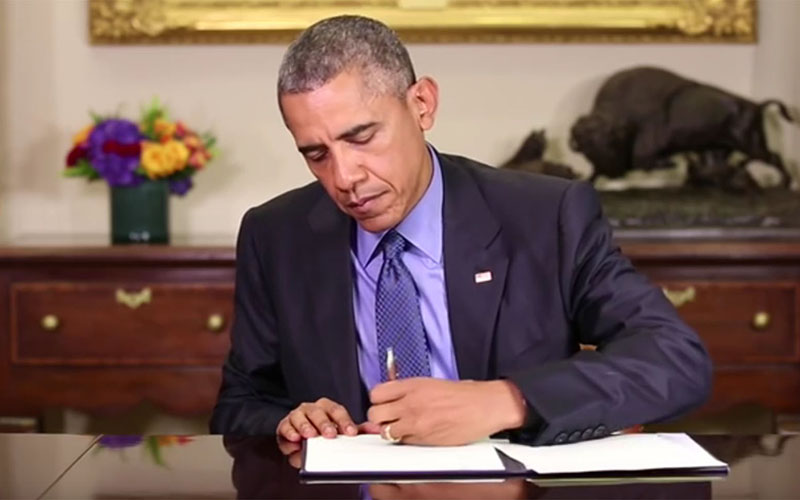WASHINGTON – Arizona and Nevada have never had much in common with Vermont – until last month.
Those three are now the only states that have not been touched by President Barack Obama’s record-setting pace of prison sentence commutations, with 1,023 nonviolent federal criminals having their sentences reduced so far.
Experts say there’s likely nothing other than luck, or lack of it, behind the fact that the three states have been passed over.
“It’s more a function of what the prosecutors did 10 or more years ago than it is of there being some magic number for each state,” said Cynthia Roseberry, project manager at the Clemency Project.
The 1,023 commutations by Obama so far dwarf those of any preceding president and are more than the total of the previous 11 presidents combined, according to the White House. The commutations, in addition to 70 pardons issues by the president, are part of a larger administration effort on justice reform.
Many of those who have had their sentences shortened were nonviolent drug offenders sentenced to what would be considered overly harsh sentences today, of decades or life in prison under mandatory sentencing laws that were in place at the time.
Donna Hamm, executive director of Tempe-based Middle Ground Prison Reform, welcomed the administration’s emphasis on commutations.
Editor’s note:
A previous version of this story failed to recognize one of the groups pushing for justice reform. When Cynthia Roseberry said, “We have recommended … that these mandatory minimum sentences be stopped,” she was referring to the work of the Charles Colson Task Force on Federal Corrections, for which she is a board member. The story has been corrected, but clients who used previous versions are asked to run the correction that can be found here.
“It seems the urgency for reform in our criminal justice system has never been higher,” Hamm said.
Besides deserving a second chance after making “a mistake in their lives,” Obama has said that justice reform makes economic sense, noting that the U.S. spends $80 billion a year on prisons.
“Together we can make our communities safer, we can spend our taxpayer dollars more wisely and we can make sure that more of our citizens have a chance to become productive members of society,” Obama said in a 2015 White House video when commuting the sentences of 46 inmates.
“Their punishments didn’t fit the crime. If they had been sentenced under today’s laws nearly all of them would have already served their time,” Obama said in that video.
The federal Bureau of Prisons said there were 179,499 inmates in federal prisons as of September and 46.4 percent of them – or 83,271 – were being held for drug offenses.
Even though President Obama has made a record number of commutations, he has only commuted the sentences of just under 0.6 percent of federal inmates.
It’s typical for presidents to grant pardons around the holidays and White House officials have said they expect more action from Obama before he leaves office. But Roseberry said administration officials have said the president sees commutations as a correction to a problem rather than a gift that is just doled out at the holidays.
Ramona Brant was one of those to receive an Obama commutation. Arrested for the first-time in 1995 for a non-violent drug offense, the western North Carolina resident was sentenced to life in prison but was granted clemency by Obama decades later, in 2015.
“It’s not to say that we were all totally innocent, but not guilty to the degree that we should be sentenced so seriously in the courts,” Brant said in a White House video on the commutations.
“We’re ready to persevere and become the citizens that we need to become,” she said after her release.
Advocates say criminal justice reform is key to reducing federal prison overcrowding. Roseberry said mandatory minimum sentencing for nonviolent offenses is one of the main drivers behind over-incarceration and overcrowding in the federal system.
Roseberry, who is also on the board of the Charles Colson Task Force on Federal Corrections, said that group has “recommended to Congress that these mandatory minimum sentences be stopped, they are extremely harmful.”
The White House says the president will continue to use his clemency authority in the remaining weeks in his term. Hamm said she hopes the practice continues after that.
“With hope, the next administration will continue to realize the importance of a balanced criminal justice system,” she said.
